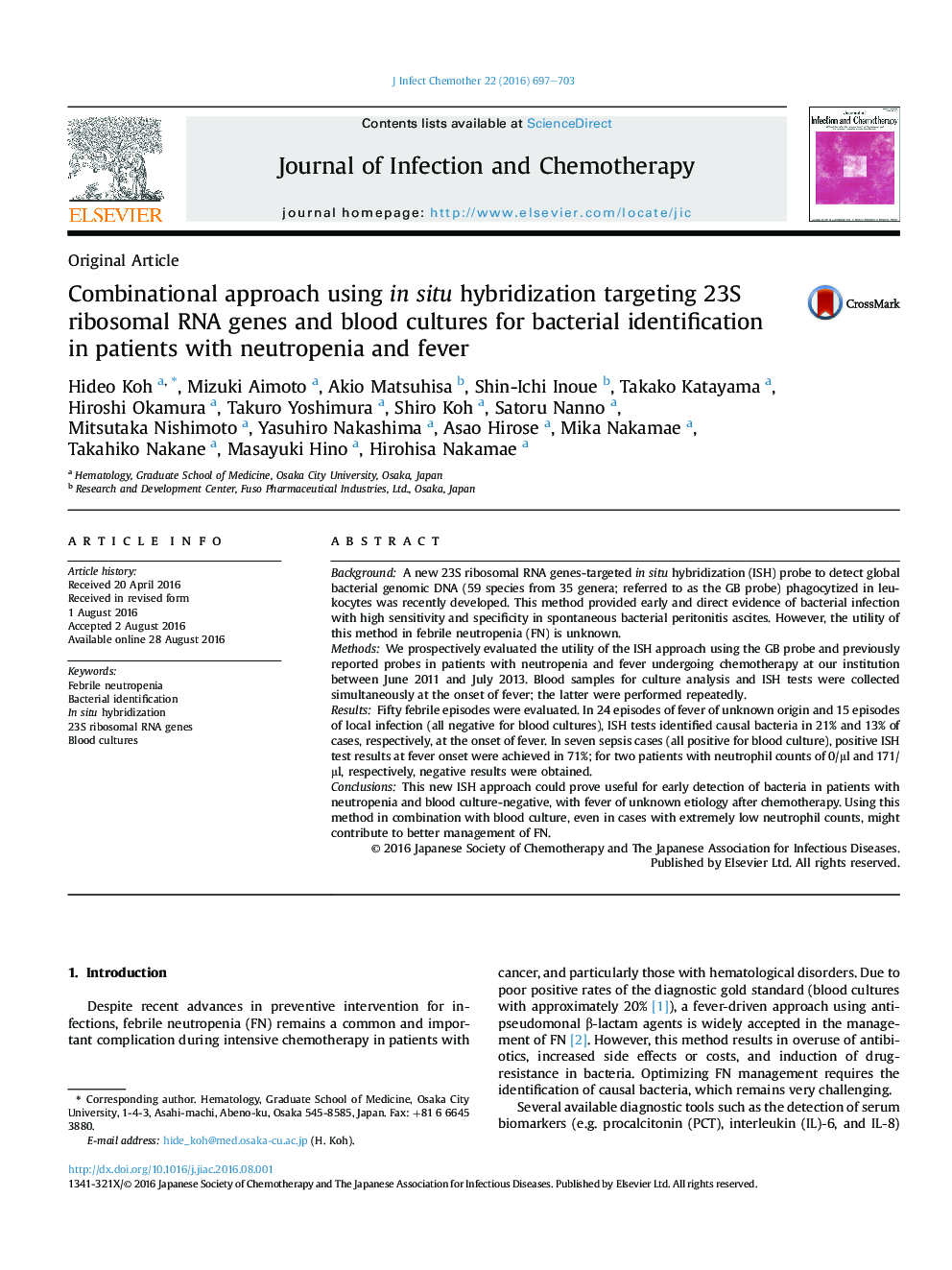| Article ID | Journal | Published Year | Pages | File Type |
|---|---|---|---|---|
| 5668972 | Journal of Infection and Chemotherapy | 2016 | 7 Pages |
BackgroundA new 23S ribosomal RNA genes-targeted in situ hybridization (ISH) probe to detect global bacterial genomic DNA (59 species from 35 genera; referred to as the GB probe) phagocytized in leukocytes was recently developed. This method provided early and direct evidence of bacterial infection with high sensitivity and specificity in spontaneous bacterial peritonitis ascites. However, the utility of this method in febrile neutropenia (FN) is unknown.MethodsWe prospectively evaluated the utility of the ISH approach using the GB probe and previously reported probes in patients with neutropenia and fever undergoing chemotherapy at our institution between June 2011 and July 2013. Blood samples for culture analysis and ISH tests were collected simultaneously at the onset of fever; the latter were performed repeatedly.ResultsFifty febrile episodes were evaluated. In 24 episodes of fever of unknown origin and 15 episodes of local infection (all negative for blood cultures), ISH tests identified causal bacteria in 21% and 13% of cases, respectively, at the onset of fever. In seven sepsis cases (all positive for blood culture), positive ISH test results at fever onset were achieved in 71%; for two patients with neutrophil counts of 0/μl and 171/μl, respectively, negative results were obtained.ConclusionsThis new ISH approach could prove useful for early detection of bacteria in patients with neutropenia and blood culture-negative, with fever of unknown etiology after chemotherapy. Using this method in combination with blood culture, even in cases with extremely low neutrophil counts, might contribute to better management of FN.
